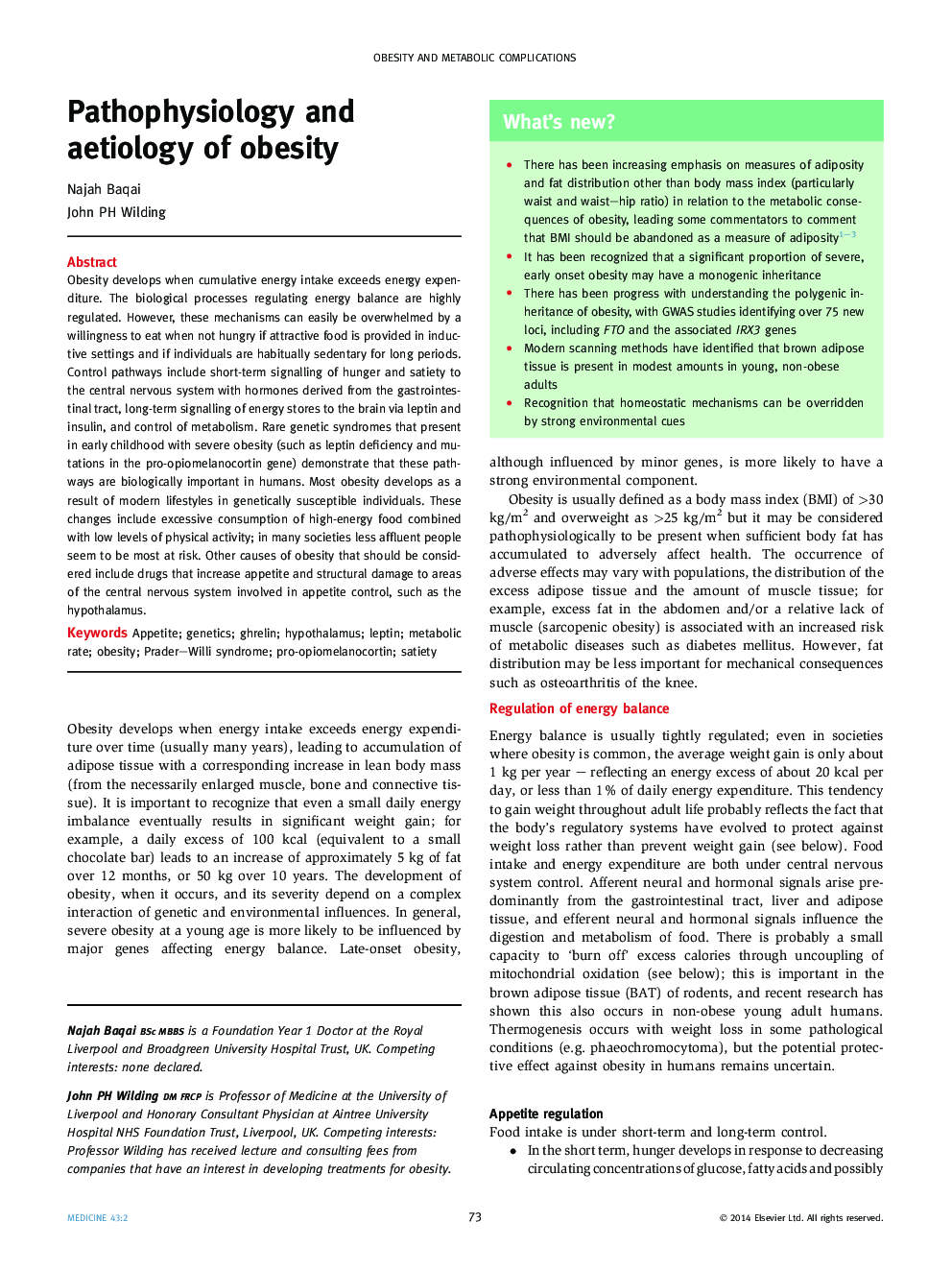| کد مقاله | کد نشریه | سال انتشار | مقاله انگلیسی | نسخه تمام متن |
|---|---|---|---|---|
| 3806513 | 1245301 | 2015 | 4 صفحه PDF | دانلود رایگان |
Obesity develops when cumulative energy intake exceeds energy expenditure. The biological processes regulating energy balance are highly regulated. However, these mechanisms can easily be overwhelmed by a willingness to eat when not hungry if attractive food is provided in inductive settings and if individuals are habitually sedentary for long periods. Control pathways include short-term signalling of hunger and satiety to the central nervous system with hormones derived from the gastrointestinal tract, long-term signalling of energy stores to the brain via leptin and insulin, and control of metabolism. Rare genetic syndromes that present in early childhood with severe obesity (such as leptin deficiency and mutations in the pro-opiomelanocortin gene) demonstrate that these pathways are biologically important in humans. Most obesity develops as a result of modern lifestyles in genetically susceptible individuals. These changes include excessive consumption of high-energy food combined with low levels of physical activity; in many societies less affluent people seem to be most at risk. Other causes of obesity that should be considered include drugs that increase appetite and structural damage to areas of the central nervous system involved in appetite control, such as the hypothalamus.
Journal: Medicine - Volume 43, Issue 2, February 2015, Pages 73–76
